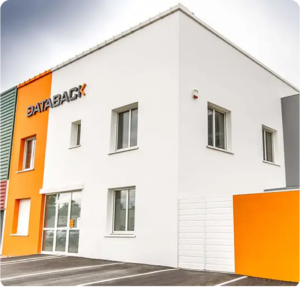Data recovery, a specialist business
It’s often very tempting to deal with a computer breakdown yourself. But any action taken without the right know-how or equipment can make the situation worse, leading to permanent data loss and compromising the chances of subsequent repairs.
Doing it yourself can worsen data loss
In the event of a physical breakdown, working on the damaged equipment yourself is never without risk:
- In the event of a mechanical failure, a hard disk should never be opened outside the controlled atmosphere of a clean room. The slightest dust can cause irreparable damage to the magnetic platters on which the data is stored.
- In the event of an electronic failure, the storage medium’s controller board (hard disk PCB…) is most often to blame. Replacing it using the wrong standards or under the wrong conditions can result in data loss at best, and irreversible failure at worst.
In the event of software failure, the risk of aggravation or irreversible loss of data is very high. In this kind of situation, it is imperative not to make any further use of the storage medium, nor to carry out any logical operations (formatting, reinstalling software, scanning the medium, etc.). In fact, it’s not advisable to use recovery software: effective for small logical errors (accidental deletion of data), these tools will make you pay for any error in diagnosis or configuration.
Data recovery laboratory expertise
Data recovery is more often a technical challenge than a mere formality. The variety of storage media, data formats and failure scenarios makes it a job for specialists. It requires professional expertise and know-how on the one hand, and specific infrastructures and equipment on the other.
Companies that have made data recovery their core business usually have a team of specialized technicians and engineers, as well as a fully-equipped laboratory. They are generally able to put forward :
- Practical experience (sometimes forged over thousands of recovery operations) in making the right diagnoses and implementing the right solutions.
- Technology watch to keep expertise and know-how up to date with new technologies.
- Research and development to develop new tools (diagnostic and recovery software, etc.).
- Laboratory at least equipped with a clean room with laminar flow hoods…










